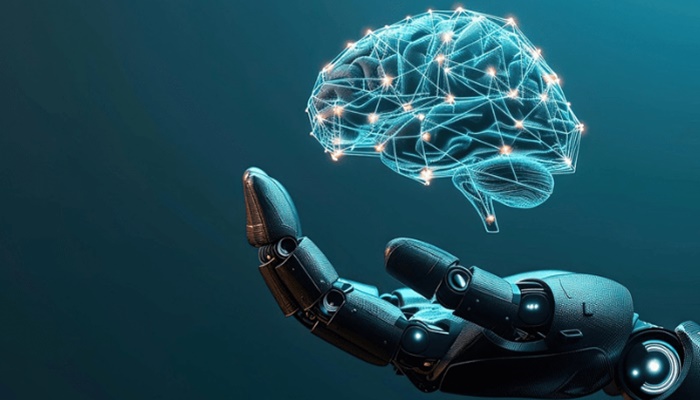Working in a kitchen or front-of-house in a busy restaurant is an incredibly fast-paced and demanding job. Customers expect every dish to be perfect and the service to be exceptional.
I believe the wave of transformation ushered in by generative AI will change every industry and job. And from fast food to fine dining, restaurants and hospitality will not be immune.
While the skills of a human chef are certainly hard for machines to emulate, there are many ways that AI can make life easier by automating routine tasks and augmenting our culinary creativity.
So here are some of the ways that jobs in restaurants and hospitality will change, ushering in new opportunities for the businesses and professionals that are prepared to embrace AI.
How Will Chefs And Restaurants Use Generative AI?
According to UK hospitality industry publication Feast, “AI is moving beyond a futuristic concept to become a real tool changing how dining works.”
As in other industries, the move will probably be led by big companies – fast food giants are already experimenting with voice AI assistants for drive-throughs and customer terminals.
However, 70 percent of the restaurant industry is comprised of small businesses with a single location, and there will be plenty of opportunities for these to get in on the action, too.
One example is using generative AI tools like ChatGPT to create menus by analyzing big datasets of customer preferences, diet trends, and availability of seasonal ingredients.
Chefs, of course, are traditionally thought of as being very passionate about their food, so most may not want to simply type “create a dish for me” any more than an author would want to type “write a book for me.” In both cases, the results would be likely to turn out just as bland!
Instead, it can provide inspiration, ideas and questions to prompt original ideas, and this is how I see it being used in kitchens. It will also create images to assist with presenting food to customers in interesting and stylish ways.
Critically, it will also help restaurateurs, business owners and franchisers to make better business decisions based on understanding customer trends, locations and preferences.
Yum Brands, the largest fast-food franchiser in the US, recently announced that it would be launching an “AI restaurant management platform”. It includes an agentic AI assistant called Bytes By Yum that helps managers with staff scheduling and other management decisions.
And generative AI will also find uses in stock and inventory management, where managers will find it useful for keeping track of ingredients, suppliers, and use-by dates.
How The Role Of Chefs And Hospitality Professionals Will Change
AI won’t be taking away jobs from chefs and cooks any time soon. Yes, robots can peel potatoes and mix ingredients, but they don’t yet have the dexterity and general intelligence capabilities to manage all of the tasks associated with a busy kitchen.
Instead, they will help them to work smarter by supporting them with tasks involving planning, preparation and scheduling. This will give them more time to spend on the high-value elements of their work involving experimenting, innovating, and demonstrating their personal flair.
With robots and AIs taking care of inventory management and replenishment or shift scheduling, chefs can instead search for newer or fresher ingredients and deliver new taste sensations.
Managers and hospitality professionals will spend more time on strategic decisions, oversight, and face-to-face interactions with customers, learning what they want. Using smart tools and working with the data and insights they provide will replace competence in routine administrative work as a key skill.
And waiting and front-of-house staff can focus on providing exceptional service and creating truly memorable dining experiences.
So rather than disappear, human roles in these industries will evolve, bringing new challenges and opportunities.
As with every profession, AI literacy and digital skills will be increasingly important to chefs and hospitality professionals who want to be at the top of their game.
Few activities are more fundamentally human in nature than eating, particularly when we’re eating great food with great friends. AI isn’t going to change this, but professionals empowered by AI will have the chance to make eating out more personalized, interesting, and satisfying.




















